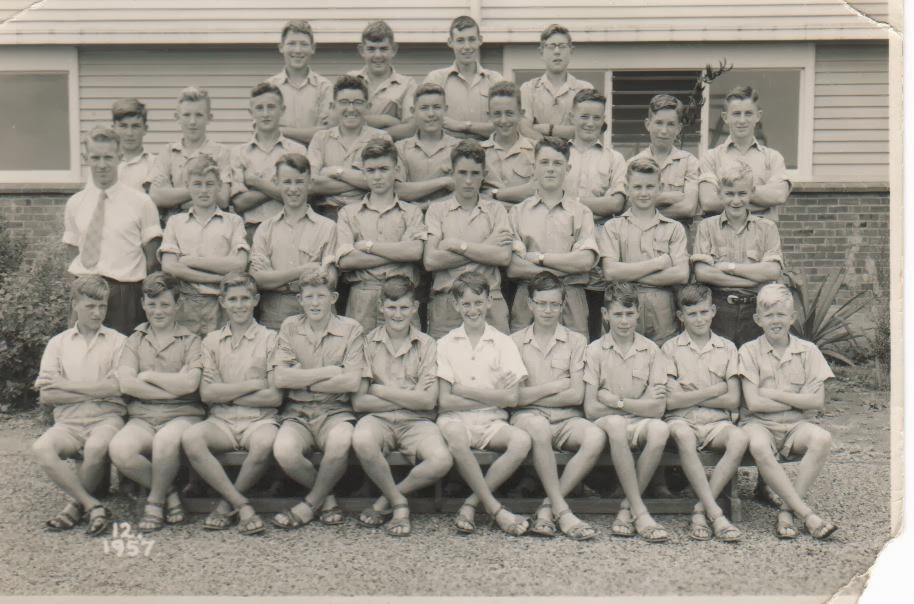(If you look at a map of Taranaki, you will see the roads radiating from Mt Taranaki like spokes of a wheel. One of the straightest is Puniho Road, near Okato. It runs from the coast straight to the peak. When it reaches the National Park boundary, it becomes a track, still heading directly for the top of the mountain for several kilometres until it comes to a place where a torrent washed away some of the bush a few years ago.
A group from New Plymouth U3A walked up there one day two years ago and on the way back I composed this poem.
Note: Jacky =tiaki was the nickname for British soldiers.)
POEM at PUNIHO TRACK
Why do they cut their straight lines through our bush,
These pale Britishers
With their hairy bodies
And their obsession with clothes and tiny mechanical
toys?
They set up their theodolites
 And open out their chains.
And open out their chains.
Then before you can say Taihoa!
There is a straight road from Ngamotu to Waitara.
***********
Britishers are taught at school
That the shortest distance between two places is
A straight line.
My journeys need landmarks:
The spring where you stop to drink,
The curve round the first hillside,
The welcoming grove of puriri,
A newly-fallen tree across an old stream,
An ancient battlefield,
The boundary of our tribal lands,
A resting-place for ancestors.
Each milestone points me to the next,
And the last to journey’s end.
The land does not set them out in
A straight row.
***********
The Britishers’ chief is a man called Carrington.
I asked him the meaning of their straight roads.
“When I was young,
My boss was a great warrior,
He fought in the greatest battle in the world,
At a battlefield called Waterloo.”
British roads are straight
So Jacky can march.
***********
But I know better.
When I was a young man
I worked in the North for Jacky,
Fighting against the Ngapuhi.
We dragged the seige-guns
Up the long hill from Taumarere to Ruapekapeka,
By the winding Pakaru Road.
Jacky said when we reached Ruapekapeka,
The guns were pakarued by the twisting road.
We spent days mending the wagons
And the guns.
British roads are straight
So the cannon can be moved.
There was no straight road
From Ruapekapeka to Waitara in those days
And you still can’t walk a straight line
Between those two,
Or any other pair in the world.
--24 January 2012
(Notes: Photo of New Plymouth from Ngamotu to Waitara, Airview online;
Impression of Ruapekapeka Pa, Bay of Islands, DOC image;
Frederic Carrington was the surveyor who planned the New Plymouth settlement and city. He had formerly worked for the Survey Department in England; the Minister-in-charge was Sir Hussey Vivian, who had been a general on Wellington's staff at Waterloo.)
 This is the view over our neighbours' houses looking to the centre of New Plymouth, with the TSB head office ten minutes' walk away, Macca's just round the corner, and three supermarkets handy. We can walk easily to many of the places we need to visit, and to the movies, cafés, library, city shops and Pukekura Park.
This is the view over our neighbours' houses looking to the centre of New Plymouth, with the TSB head office ten minutes' walk away, Macca's just round the corner, and three supermarkets handy. We can walk easily to many of the places we need to visit, and to the movies, cafés, library, city shops and Pukekura Park. We have a smallish garden which supplies some veggies plus feijoas, lemons, mandarins, grapes and even a few apples.
We have a smallish garden which supplies some veggies plus feijoas, lemons, mandarins, grapes and even a few apples. 































